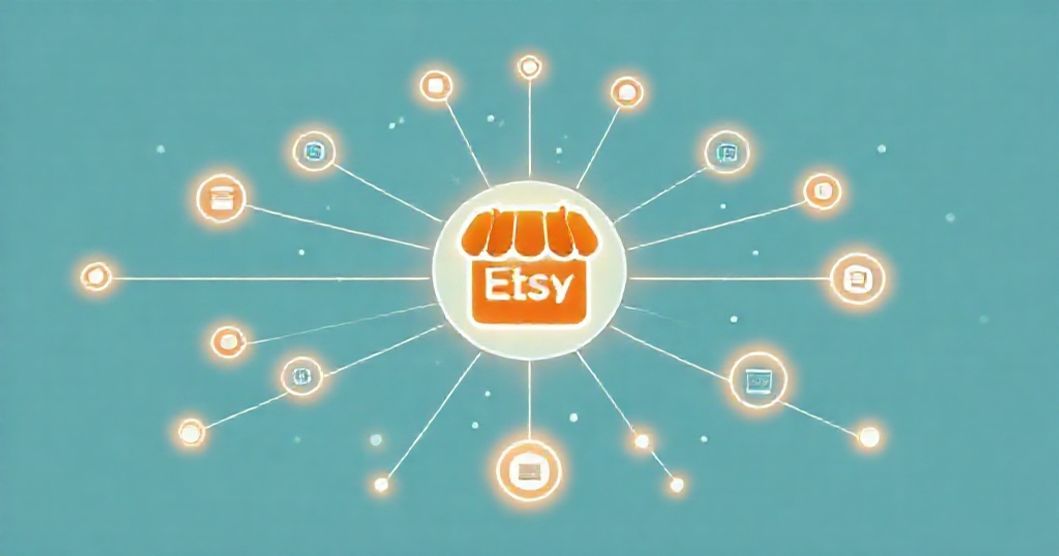Etsy has become a vibrant marketplace for millions of creators, artisans, and vintage enthusiasts worldwide. While the platform offers robust tools for setting up a shop and listing products, managing a growing business often requires capabilities beyond its native features. This is where Etsy integrations become indispensable. By connecting your Etsy shop with specialized external applications, you can automate repetitive tasks, streamline operations, and ultimately scale your business more efficiently. Understanding the diverse range of available integrations and their strategic benefits is crucial for any seller aiming for sustainable success and expanded reach in a competitive market.
Understanding Etsy Integrations: A Foundational Overview
Etsy integrations involve linking your Etsy shop to third-party software applications designed to enhance specific business functions. These tools act as extensions, allowing for seamless data exchange and workflow automation that native Etsy tools might not fully support. The primary goal of implementing Etsy integrations is to improve operational efficiency, reduce manual errors, and free up valuable time for sellers. From managing orders and inventory to handling shipping and accounting, these integrations cover a wide spectrum of business needs, transforming how sellers operate and grow their craft.
Streamlining Shipping and Fulfillment: Key Integrations
Efficient shipping is paramount for customer satisfaction and repeat business on Etsy. Manual label creation and rate comparison can be time-consuming, especially for high-volume sellers. Shipping integrations like ShipStation, Pirate Ship, and Stamps.com directly connect with your Etsy shop, pulling order details and generating shipping labels automatically. These platforms often provide access to discounted shipping rates from major carriers, alongside features for batch processing, tracking updates, and return label creation. Subscription costs for these services typically range from free for basic tiers to $9-$50+ per month, depending on order volume and advanced features required by the Etsy seller.
Mastering Inventory and Order Management Across Platforms
For Etsy sellers expanding to other marketplaces or their own websites, managing inventory across multiple platforms is a significant challenge. Inventory management system (IMS) integrations are vital for preventing overselling and maintaining accurate stock levels. Tools such as Sellbrite, Ecomdash, or Zoho Inventory centralize your product listings and inventory counts, syncing updates across Etsy and other sales channels in real-time. These Etsy integrations provide a unified dashboard for order processing, stock adjustments, and performance reporting. Pricing for such comprehensive solutions can vary significantly, starting from around $49 per month for basic plans and scaling upwards of $200+ for businesses with high SKU counts or complex needs.
Simplifying Financial Tracking: Accounting Software Integrations
Accurate bookkeeping is essential for any business, regardless of its size, ensuring compliance and providing insights into profitability. Integrating your Etsy sales data with accounting software significantly simplifies financial management. Solutions like QuickBooks Online, Xero, or FreshBooks can automatically import your Etsy transactions, sales, fees, and refunds. This automation eliminates manual data entry, reduces errors, and facilitates easy generation of profit and loss statements, balance sheets, and tax reports. Monthly subscription fees for small business accounting software typically fall within the range of $15 to $70, offering various tiers based on features and number of users.
Expanding Product Offerings: Print-on-Demand Integrations
Print-on-demand (PoD) integrations are revolutionary for Etsy sellers looking to expand their product lines without investing in physical inventory upfront. Platforms like Printful and Printify allow you to design custom products such as apparel, mugs, and home decor, which are then produced and shipped directly to your customer only when an order is placed. These Etsy integrations automate the entire fulfillment process from your shop to the manufacturer. This model eliminates inventory risk and storage costs, allowing for a vast product catalog. While there are typically no monthly subscription fees for these services, you pay a base cost per product only when an item sells, directly impacting your profitability margins.
Cultivating Customer Relationships and Marketing Automation
Building strong customer relationships and leveraging marketing automation are key to repeat business and brand loyalty. While Etsy provides basic messaging tools, integrating with email marketing platforms can enhance communication. Although direct, deep integrations are less common, many sellers use third-party tools or manual exports to transfer customer data to platforms like Mailchimp or Klaviyo. This allows for targeted email campaigns, abandoned cart recovery sequences, and personalized follow-ups. Many email marketing services offer free tiers for a limited number of subscribers, with paid plans scaling up based on contact list size and advanced features needed for robust Etsy marketing strategies.
Choosing the Right Etsy Integrations for Your Business Needs
Selecting the most suitable Etsy integrations requires careful consideration of your specific business needs, budget, and growth aspirations. Begin by identifying your biggest pain points: Is it shipping inefficiency, inventory headaches, or manual bookkeeping? Evaluate the features offered by different integration solutions, paying attention to their compatibility with Etsy and other platforms you use. Consider the cost-benefit analysis, comparing subscription fees with the time and resources you save. Most integration providers offer free trials, which are invaluable for testing functionality and user-friendliness before committing to a paid plan. Starting with solutions that address your immediate challenges and scaling up as your business grows is a prudent approach.
Unlocking Scalability and Profitability Through Strategic Integrations
Strategic implementation of Etsy integrations is a powerful catalyst for transforming a hobby into a thriving, scalable business. By automating core processes, reducing operational costs, and minimizing manual errors, sellers can dedicate more time to creativity, product development, and customer engagement. These integrations foster an environment of efficiency, allowing for seamless expansion into new markets and product categories. Ultimately, leveraging the right Etsy integrations empowers sellers to maintain a competitive edge, enhance customer experience, and achieve sustained profitability and growth in the dynamic e-commerce landscape.




